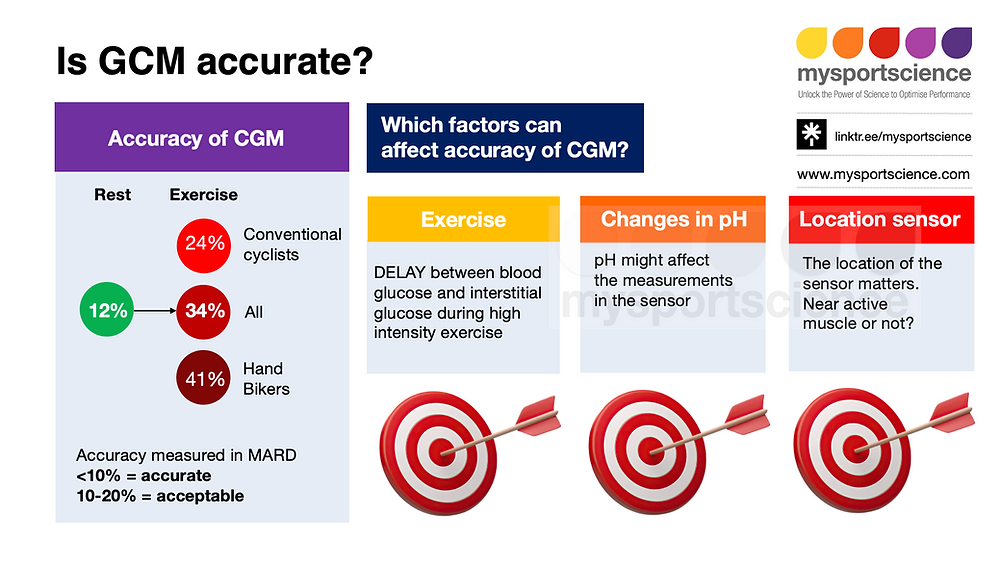Continuous Glucose Monitoring (CGM) is emerging as an essential tool for endurance athletes, particularly those competing or training under physically demanding conditions. By supplying real-time glucose data, CGMs offer insights into how training, recovery, and nutritional strategies affect performance. This technology allows athletes to meticulously monitor glucose levels, providing a nuanced understanding of the metabolic responses triggered during extended exertion.
In a recent study involving elite Para cyclists, CGMs were instrumental in revealing how glucose profiles vary during different phases of training and recovery. Participants wore CGMs while logging their meals and training sessions, providing valuable data on glucose fluctuations throughout daily activities, both at rest and during exertion. This continuous monitoring allows athletes to identify their personal glucose responses to specific foods and workout intensities. Understanding these dynamics is crucial for performance optimization, as athletes often experience fluctuations in glucose levels due to varied carbohydrate intake, energy expenditure, and physiological stressors.
The findings from this study indicate that elite Para cyclists spent a significant amount of time—91%—within the optimal glucose range of 3.9 to 7.8 mmol/L. Despite occasional mild hyperglycemia post-meals, particularly lunch, severe hyperglycemic episodes were rare. This indicates a general state of well-regulated glucose levels, which is critical for maintaining energy during long-duration events. However, athletes, especially those with spinal cord injuries (SCI), may experience higher risks of nocturnal hypoglycemia, which can interfere with recovery and overall performance.
For endurance athletes, one of the practical implications of using CGM data is its potential to guide nutrition strategies that align with their specific metabolic needs. It allows for personalized fueling strategies based on real-time insights into one’s glucose response. This is particularly beneficial when formulating a plan for carbohydrate intake during longer training sessions or races. Recognizing how your body responds to different foods can help refine pre- and intra-event nutrition. For instance, while some athletes may benefit from high-glycemic foods to quickly replenish glucose, others might find a better performance balance with complex carbohydrates that release energy more steadily.
During intense training or racing, several physiological factors can impact the accuracy of CGMs, especially due to their location on the upper arm, where muscle activity can influence readings. This information helps athletes and coaches understand how to interpret CGM data in real time. An athlete might notice discrepancies in glucose levels during exercise compared to post-exercise blood samples. This is attributed to various factors, including increased blood flow and glucose uptake by muscles during efforts, which creates a lag in how accurately interstitial glucose mirrors blood glucose. Awareness of these limitations is crucial for athletes looking to manage their fueling and hydration strategies adequately.
Additionally, sustaining ideal hydration levels is paramount for maintaining glucose regulation. Dehydration can impair performance and exacerbate fluctuations in glucose levels. Therefore, hydration strategies should ensure electrolyte balance during extended efforts, particularly when racing under challenging conditions. Proper hydration supplements can also stabilize blood glucose levels, helping minimize the risk of spikes or drops that could impair performance.
Rest and recovery strategies are another area where CGM data can provide crucial insights. Athletes often overlook the role of recovery in glucose metabolism. The study highlights that nocturnal hypoglycemia is particularly concerning among SCI athletes, which points to a potential gap in recovery practices that could influence subsequent performance. The recovery phase, marked by adequate nutritional intake and hydration, should include a focus on promoting stable glucose levels, as fluctuations can affect sleep quality, leading to fatigue during subsequent training or competitive efforts.
When it comes to supplementation, athletes might consider tailoring their ingestion around their specific glucose patterns. For those who experience lows during prolonged exertion, fast-acting carbohydrate supplements could be beneficial. In contrast, those who maintain stable glucose may prioritize recovery-based supplements that facilitate glycogen resynthesis without risking excess during training.
The overarching takeaway for endurance athletes looking to optimize their performance is the critical role of understanding personal glucose dynamics through sophisticated monitoring techniques like CGM. This knowledge allows for a more strategic approach to nutrition timing and fueling strategies, which are essential in navigating the demands of long-duration efforts. Additionally, being proactive about potential nocturnal hypoglycemia, especially in at-risk groups, serves as a reminder to consider individual needs during recovery phases.
Incorporating insights from CGM data into training and competition strategies can lead to improved metabolic efficiency, supported recovery, and ultimately enhanced performance during challenging efforts. This approach emphasizes the importance of personalization in sports nutrition, informed by real-time data, as a means to maintain optimal energy levels and performance consistency throughout demanding training and racing scenarios.
